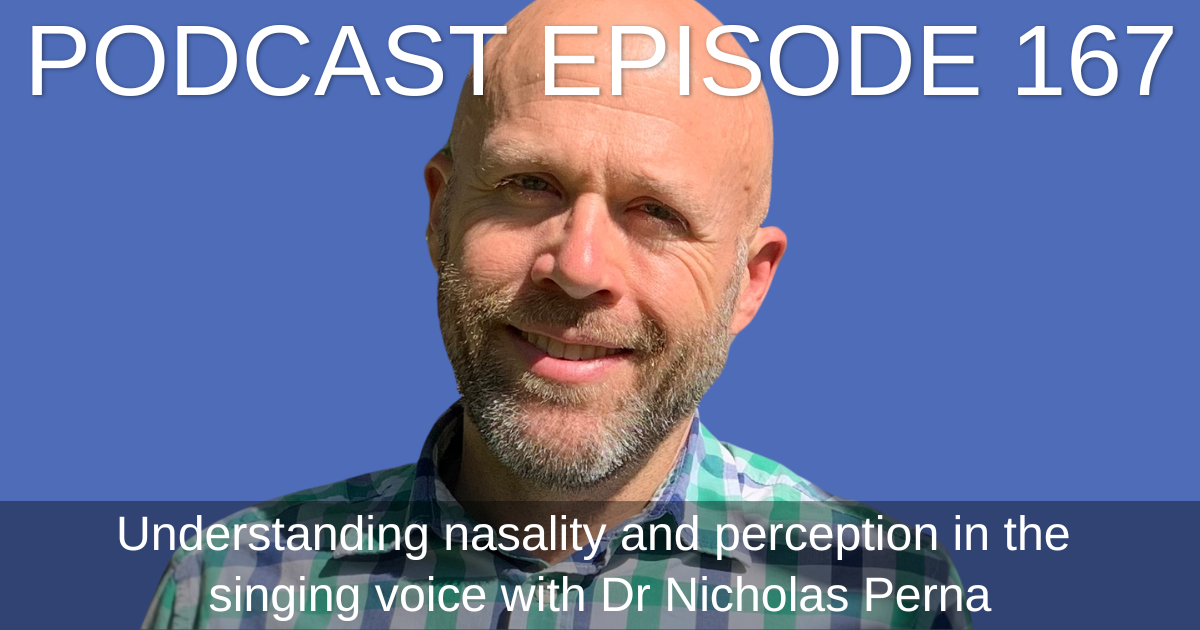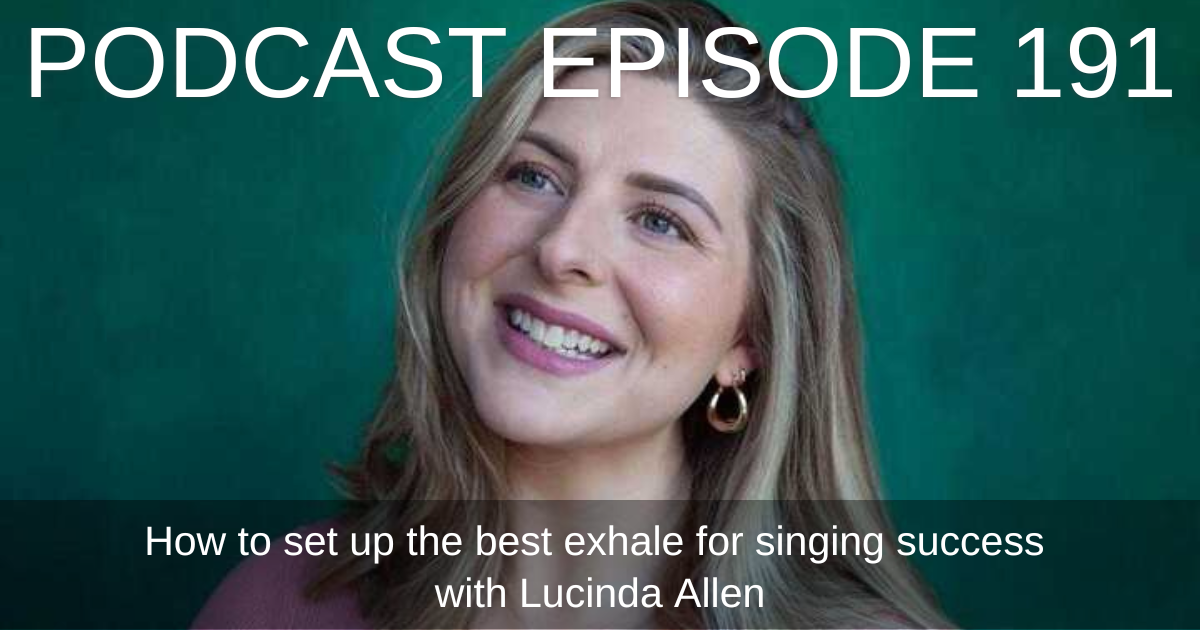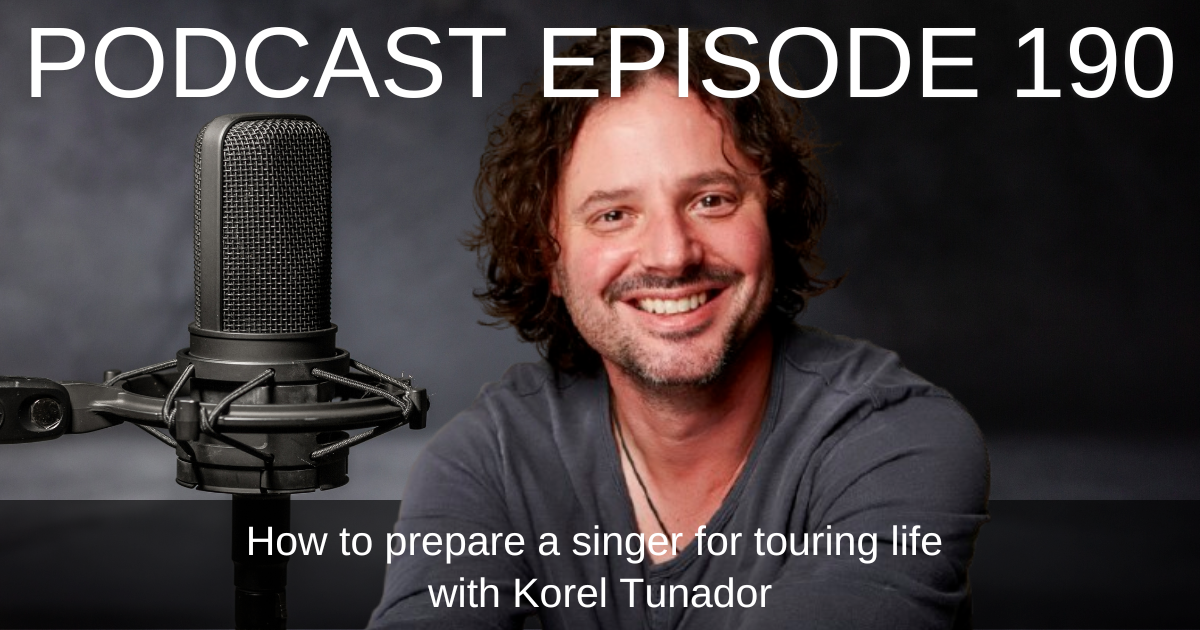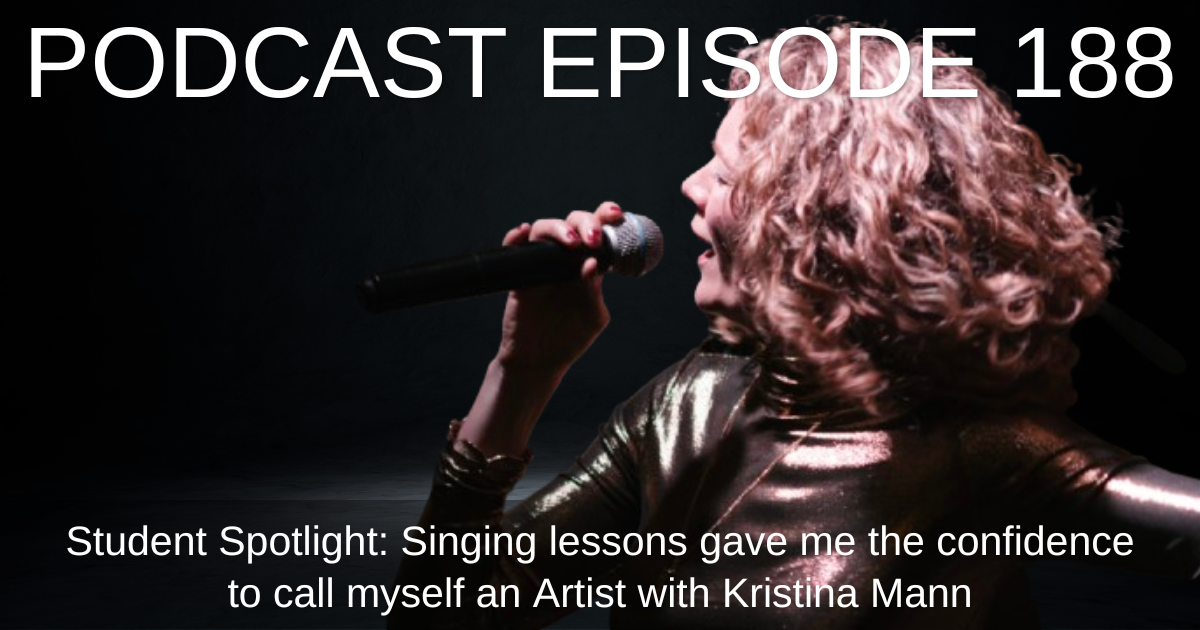Alexa is joined by Dr Nicholas Perna to talk about nasality. They discuss and unravel the mysteries of the nose’s role in vocal production. From debunking myths about nasal resonance to exploring the benefits of nasal airflow, Dr Perna’s insights will challenge your assumptions and expand your understanding of vocal technique. Whether you’re a singing teacher or a curious vocalist, this episode offers a fresh perspective on an often misunderstood aspect of voice production.
KEY TAKEAWAYS
- Nasality in singing is often misperceived; what we think sounds nasal is usually twang or high spectral energy, not actual nasal airflow.
- The soft palate’s movement in singing is more of a backward motion rather than an upward lift, contrary to common teaching cues.
- A mild amount of velopharyngeal opening can positively impact resonance stability, especially in the passaggio range for tenors.
- The term ‘nasal resonance’ may be misleading, as the nose neither amplifies nor enriches sound in singing.
- Contemporary singing styles often rely on audio processing and EQ adjustments, which significantly affect the final sound beyond the singer’s raw vocal output.
- Good scientific research seeks to disprove itself, challenging researchers to remain curious and open to new findings.
- Singers and teachers should focus on the journey of learning rather than believing they’ve reached a definitive destination in understanding vocal technique.
- Exploring velopharyngeal opening in musical theatre singers, particularly in mix and belt techniques, is an area ripe for future research.
BEST MOMENTS
“What nasality is does not often coincide to its perceptual characteristics. And equally, studies have demonstrated that there isn’t really this general consensus amongst singing teachers about perceived nasality.”
“Good science seeks to disprove itself. Staying curious means that you have an awareness that you are probably wrong.”
“The likelihood that that sound includes nasal airflow and that the soft palate is relaxed is very low because what the nasal passage does it has very thick mucous membranes. It’s moist. There’s other structures up there, typically hair, et cetera. And those things, dull sound, particularly high spectral energy.”
“I propose that we eliminate the term ‘nasal resonance’ altogether, because if we think of resonance as a definition of amplification and enrichment, the nose is neither amplifying sound, nor is it enriching sound.”
“The easiest observation you can obviously make, just to know whether there’s anything happening or not, is to simply sustain a tone, pinch your nose shut, and see if you notice any difference.”
EPISODE RESOURCES
- Voice Study Centre
- (Podcast) Singing Teachers Talk: Ep.151 How to Sing with Twang with Kerrie Obert
- (Podcast) Singing Teachers Talk: Ep. Dr Matt Edwards
- (Podcast) Singing Teachers Talk: Ep. Aaron Johnson
- Journal of Singing: nats.org/cgi/page.cgi/about_journal_singing.html
- (JoS) Nasality Deconstructed by Nicholas Perna: nats.org/_Library/JOS_On_Point/JOS-076-04-2020-429.pdf
- Heidi Moss:
- Spectrum Effects of VPO in Singing by Gill, Lee, La, Sundberg: jvoice.org/article/S0892-1997(18)30446-6/abstract
- Effects of Nasalance on the Acoustics of the Tenor Passaggio and Head Voice by Nicholas Perna
- Celine Dion: An NBC News Special with Hoda Kotb (Full Interview): com/watch?v=ncwhU70I3T4
- The work of Christian Herbst: christian-herbst.org
- University of Colorado Boulder: colorado.edu
The work of Berton Coffin: nats.org/_Library/Named_Funds/Berton_Coffin_Endowment_-_web_ready.pdf
ABOUT THE GUEST
Guest Website:
Contact Nicholas directly: nicholas.perna@colorado.edu
Follow Nichola’s Podcast ‘Vocal Fri’ Here: vocalfri.com
Social Media:
Instagram: @vocalfriperna
Youtube: youtube.com/@vocalfriperna
Tenor Nicholas Perna’s voice has been hailed by the Houston Chronicle as “an impressive sound,” and the South Florida Sun Sentinel praised his “emotionally driven performance.” Perna was a recent finalist for the American Prize for men in opera, and has appeared multiple times in recent seasons with Opera Mississippi. Perna was twice selected as a Santa Fe Opera Apprentice Artist singer. Additional stage credits vary from opera roles such as Don José in Carmen and Rodolfo in La Bohème to Musical Theatre roles such as Ravenal in Show Boat, and Archie in The Secret Garden. Symphonic appearances include Mahler’s Das Lied von der Erde and Beethoven’s Symphony No. 9.
Dr Perna is Associate Professor and Director of Vocal Pedagogy at the University of Colorado at Boulder. He has publications in Journal of Singing, Journal of Voice, and VOICEPrints. A Presser Music Foundation awardee, he has presented research on four continents at events such as the Voice Foundation’s Symposium, ICVT, NATS National Conference, and Physiology and Acoustics of Singing (PAS). Dr Perna is currently Vice President for Outreach for the National Association of Teachers of Singing and is the creator and co-host of the VocalFri Podcast, http://www.vocalfri.com. Dr Perna holds graduate degrees from the University of Miami and the University of Houston. In 2024 Perna began his tenure as Executive Director of Opera Mississippi. Previous faculty positions include Mississippi College, West Virginia University, and he has been a voice research associate at the University of Mississippi Medical Center.






